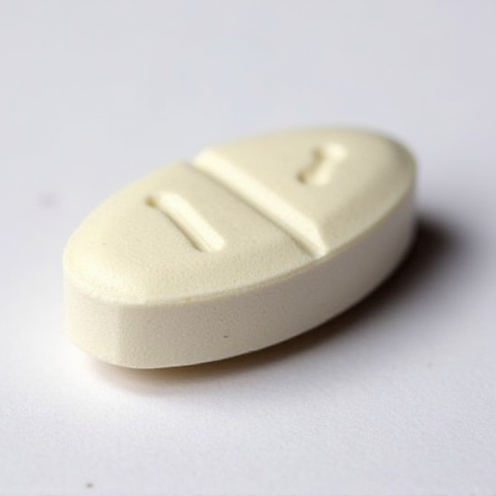Difisal 50mg Tablet
Product Info
| Prescription required | Yes |
| Marketer | Kopran Ltd |
| Active Ingredient | Diclofenac (50mg) |
| Storage | Store below 30°C |
| Chemical Class | Phenylacetic acid Derivative |
| Habit Forming | No |
| Therapeutic Class | PAIN ANALGESICS |
| Action Class | NSAID's- Non-Selective COX 1&2 Inhibitors (acetic acid) |
| User Rating | 4.1 |
| User Reviews | 744 |
FAQ
















Difisal 50mg Tablet Reviews
Difisal 50mg should be taken in the dose and duration as advised by your doctor. It should be taken with food or milk to prevent stomach upset. Inform your doctor if you have any history of heart disease or stroke.
The most common side effects of this medicine include nausea, vomiting, diarrhea, abdominal pain, indigestion, flatulence, decreased appetite, headache, and dizziness. Your doctor may also regularly monitor your kidney function, liver function, and levels of blood components if you are taking this medicine for long-term treatment. Long-term use may lead to serious complications such as stomach bleeding and kidney problems.
Difisal 50mg should be used with precaution in patients with asthma and cardiovascular bleeding. This medicine is contraindicated for the treatment of perioperative pain in the setting of coronary artery bypass graft (CABG) surgery. Pregnant and breastfeeding women should consult their doctors before using this medicine as it may cause harmful effects to the developing baby.
How Difisal 50mg Tablet Works
How to Use Difisal 50mg Tablet
Benefits of Difisal 50mg Tablet
- In Pain relief: Difisal 50mg belongs to a group of medicines called nonsteroidal anti-inflammatory drugs (NSAIDs). It is used for short-term relief of pain, inflammation, and swelling in conditions that affect joints and muscles. It works by blocking chemical messengers in the brain that tell us we have pain. It can help relieve pain in conditions like rheumatoid arthritis and osteoarthritis.Take it as it is prescribed to get the most benefit. Do not take more or longer than needed as that can be dangerous. In general, you should take the lowest dose that works, for the shortest possible time. This will help you to go about your daily activities more easily and have a better, more active, quality of life.
Uses of Difisal 50mg Tablet
- Pain relief
Difisal 50mg Tablet Side Effects

Safety Tips
Quick Tips
- Take it as per the dose and duration prescribed by your doctor. Long term use may lead to serious complications such as stomach bleeding and kidney problems.
- You have been prescribed Difisal 50mg to relieve pain and inflammation.
- Your doctor may regularly monitor your kidney function, liver function and levels of blood components, if you are taking this medicine for long-term treatment.
- It may cause dizziness, drowsiness or visual disturbances. Use caution while driving or doing anything that requires concentration.
- Take it with food or milk to prevent upset stomach.
- Avoid consuming alcohol while taking Difisal 50mg as it can cause excessive drowsiness and increase your risk of stomach problems.
- Inform your doctor if you have a history of heart disease or stroke.
References
- Diclofenac. Rouse Boulevard, Philadelphia: Iroko Pharmaceuticals; 1998 [revised Oct. 2013].
- Furst DE, Ulrich RW, Varkey-Altamirano C. Nonsteroidal Anti-Inflammatory Drugs, Disease Modifying Antirheumatic Drugs, Nonopioids Analgesics, & Drugs Used in Gout. In: Katzung BG, Masters SB, Trevor AJ, editors. Basic and Clinical Pharmacology. 11th ed. New Delhi, India: Tata McGraw Hill Education Private Limited; 2009. p. 626.
- Diclofenac sodium [Prescribing Information]. East Hanover, NJ: Novartis Pharmaceuticals Corporation; 2021.
- Briggs GG, Freeman RK, editors. A Reference Guide to Fetal and Neonatal Risk: Drugs in Pregnancy and Lactation. 10th ed. Philadelphia, PA: Wolters Kluwer Health; 2015. pp. 295-97.
- Diclofenac. Daventry, Northamptonshire: Dexcel Pharma Ltd.; 1996 [revised 20 Dec. 2017].
- Central Drugs Standard Control Organisation (CDSCO).
- Grosser T, Smyth E, FitzGerald GA. Anti-Inflammatory, Antipyretic, and Analgesic Agents; Pharmacotherapy of Gout. In: Brunton LL, Chabner BA, Knollmann BC, editors. Goodman & Gilman’s: The Pharmacological Basis of Therapeutics. 12th ed. New York, New York: McGraw-Hill Medical; 2011. pp. 986-87.
